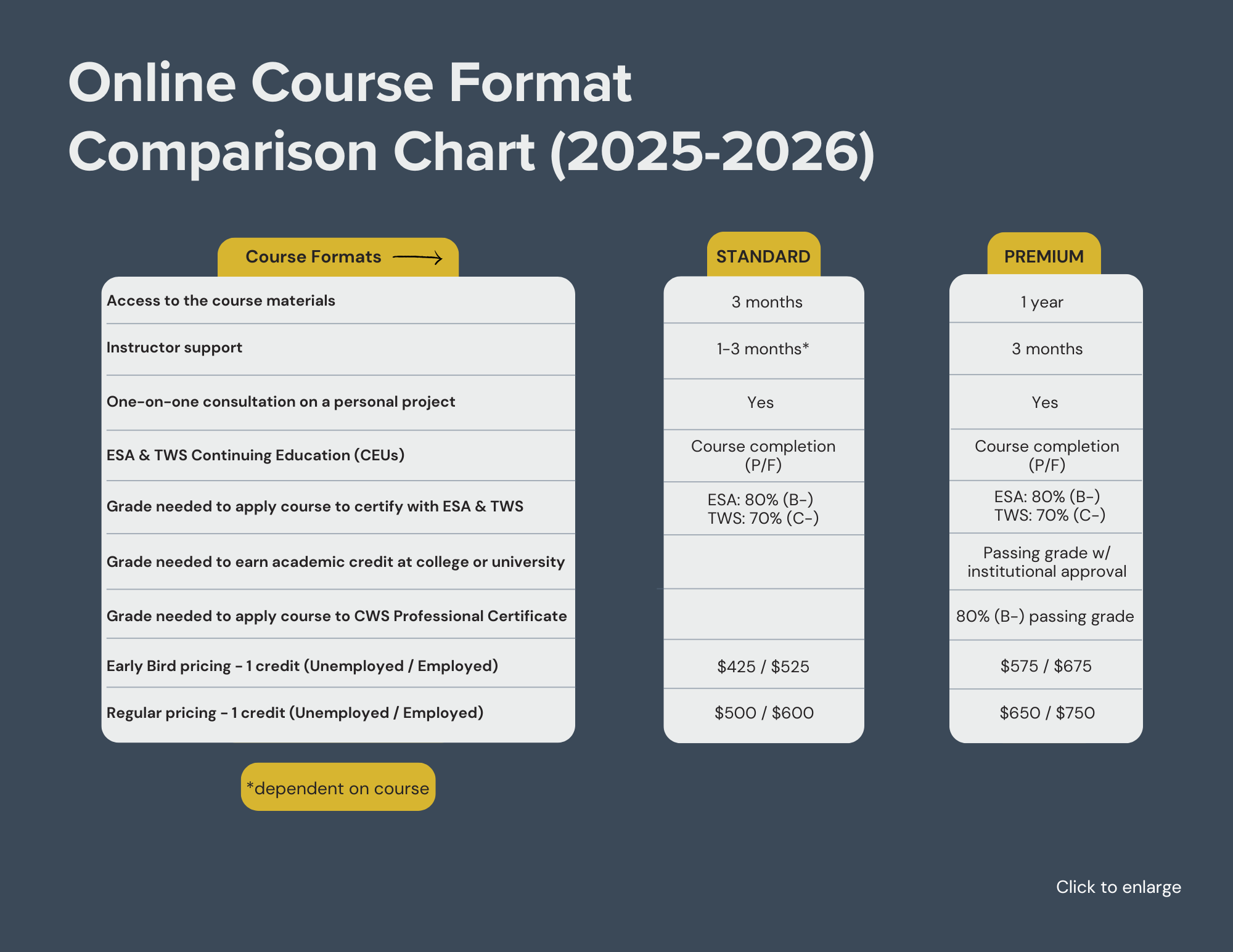 Image 1 of 1
Image 1 of 1


Public Science Engagement Using Social Media
-
It’s never been more important for scientists to get out of the ivory tower and engage with the public. Social media (“Web 2.0”) tools make it easier than ever before in human history for an expert to share their expertise and passion with the masses, and can offer many other professional benefits to scientists and environmental advocates when used properly. However, far too many well-intentioned scientists and environmental advocates don’t learn how to master these tools, resulting in well-intentioned shouting into the void with no possibility of making positive change. This class will cover online public science engagement, from the basics to advanced tips, tricks, and strategies. It will include a thorough overview of the social media landscape, highlighting the best platforms for different goals, who to follow and how to find them, and how to craft messages. It will include a discussion on public-facing scientific writing and blogs, and a discussion on building social media campaigns with actionable and measurable goals. Case studies of successful (and unsuccessful) social media outreach will be discussed throughout, and there will be many interactive guided activities. Your instructor Dr. David Shiffman is one of the most-followed scientists on social media and has taught masterclasses in online public science engagement to over 1,500 early career scientists on five continents.
-
Learn at your own pace with instructor support (see Online Course Format Chart below for details).
Fall: October 14, 2025 – January 5, 2026 (Early bird ends September 14th)
*Early bird saves $75
-
Module 1: Basics of science communication
Learning Outcome: Explain and apply basic principles of communicating science to non-expert audiences, including identifying your audience, tailoring messages to different audiences, and analyzing sample communications plans.
Module 2: The social media landscape
Learning Outcome: Define social media, list leading social media tools and their uses, and contrast the strengths and weaknesses of leading platforms for different goals.
Module 3: Building your feed and network/How to find people to follow
Learning Outcome: Create accounts and bios on leading social media platforms, identify and evaluate people to follow to build your feed, and assess and evaluate if your feed selection is working for your goals
Module 4: Crafting your message
Learning Outcome: Examine, assess, and critique sample messages, construct messages that help accomplish communications goals, and explain how certain elements in a message contribute to or do not contribute to achieving communications goals.
Module 5: Advanced tips, tricks, and strategies
Learning Outcome: Analyze and assess a variety of strategies used successfully by others and create a strategy for yourself that incorporates elements of those past strategies.

COURSE OPTIONS & INFORMATION (Review chart above, then click below)
-
FORMAT:
3 months of access to course materials as you work at your own pace
Get instructor support for the 3-month term via email, discussion threads, group meetings, and one-on-one appointments
After working through the course materials, set up an optional meeting with the instructor to discuss your own personal project from work or school
CONTINUING EDUCATION:
16 CEUs with The Wildlife Society
CERTIFICATIONS:
Earn 1 credit toward certification as an Associate/Certified Wildlife Biologist® (at any level) with The Wildlife Society
-
FORMAT:
12 months of access to course materials as you work at your own pace
Get instructor support for the 3-month term via email, discussion threads, group meetings, and one-on-one appointments
After working through the course materials, set up an optional meeting with the instructor to discuss your own personal project from work or school
CONTINUING EDUCATION:
16 CEUs with The Wildlife Society
Go to our Continuing Education Page for more details
CERTIFICATIONS:
Earn 1 credit toward certification as an Associate/Certified Wildlife Biologist® (at any level) with The Wildlife Society
ACADEMIC CREDIT:
Earn 1 academic credit (go to our Academic Credit Page for details)
Earn an additional 1-2 academic credits with an Applied Project
INSTRUCTOR
SCHOLARSHIPS
Full scholarships are available to participants from countries designated as “lower income” and “lower middle income” in the World Bank List of Economies. Please see our CWS World Scholars Program page for details.
CANCELLATION POLICY
Cancellations 30 days or more before the start date are not subject to cancellation fees. Cancellations <30 days before the start date are subject to a 50% cancellation fee. No refunds once the course begins.


